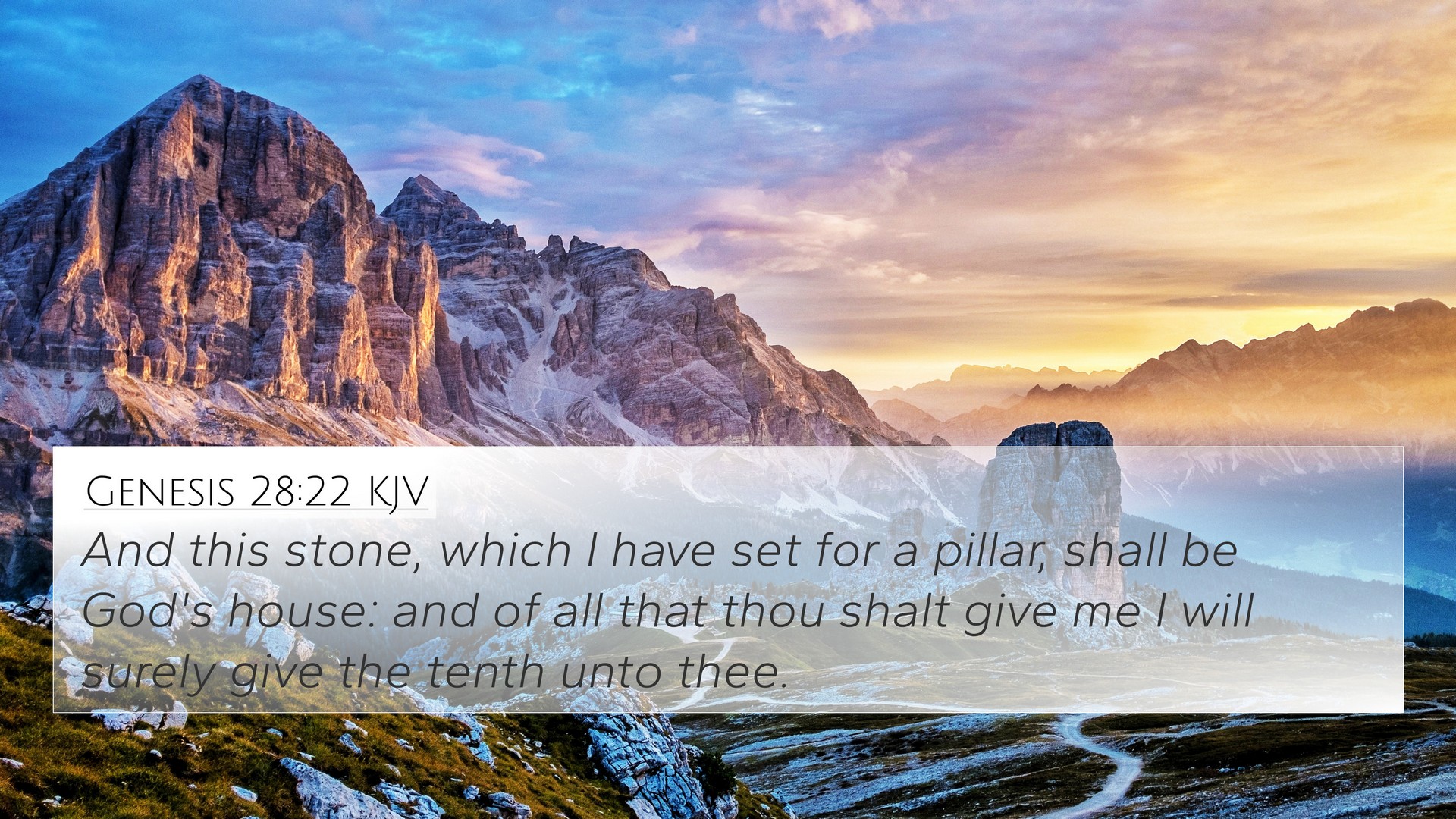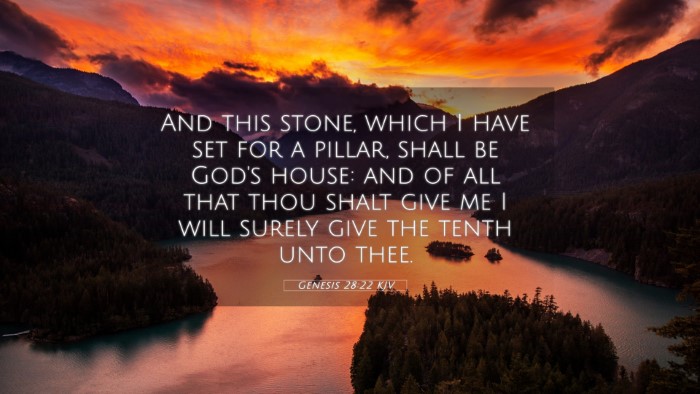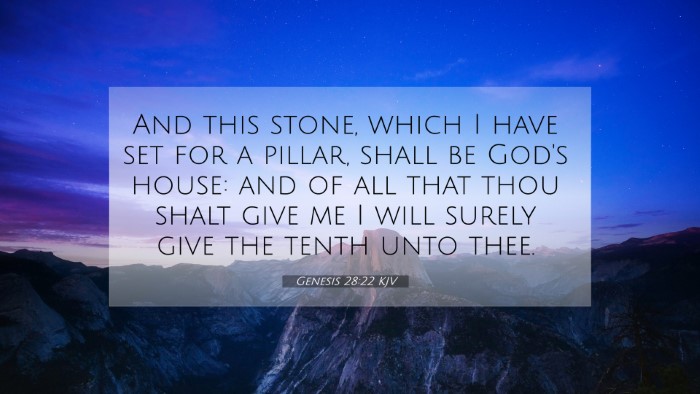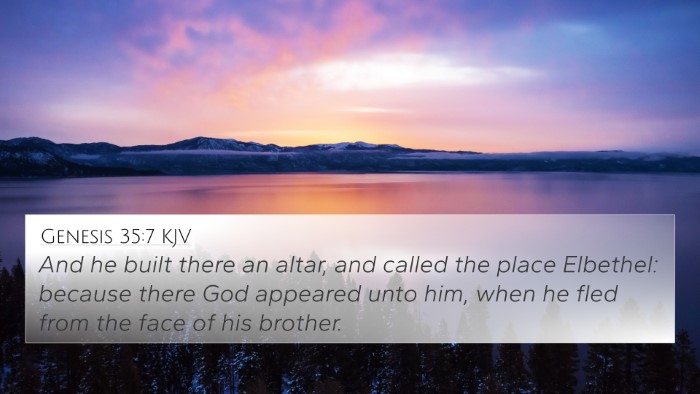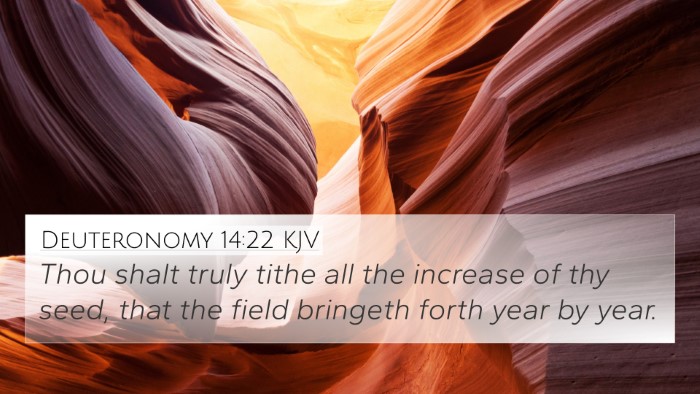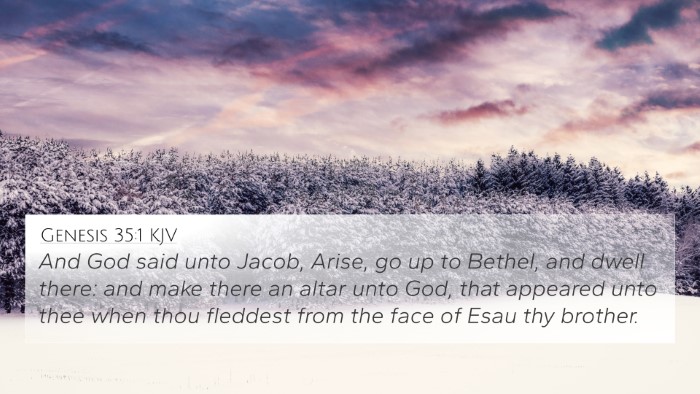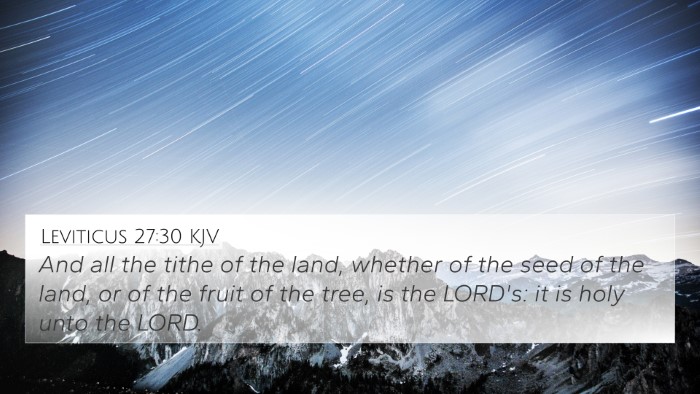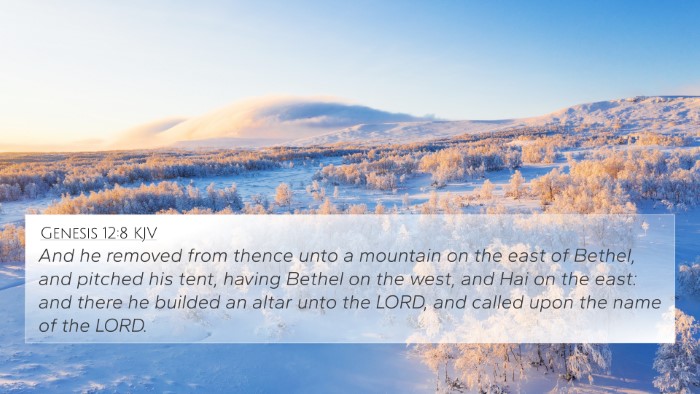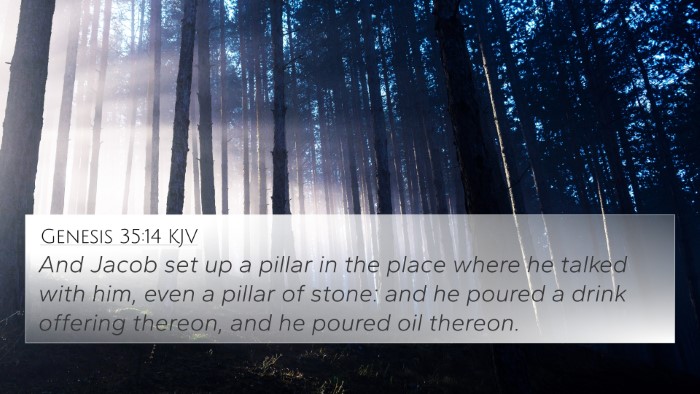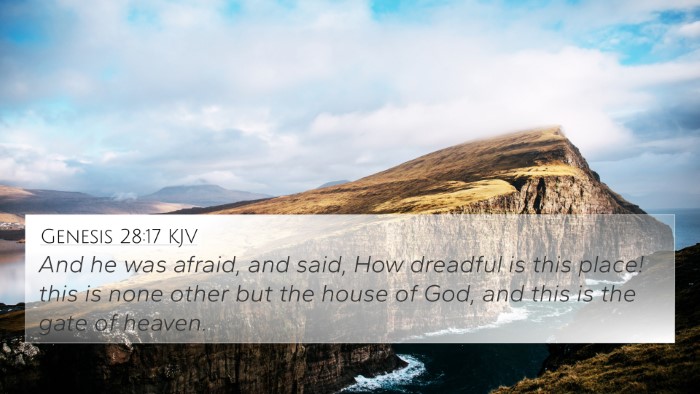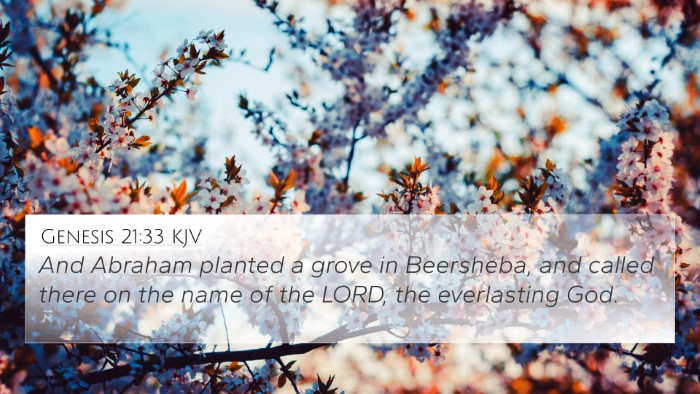Understanding Genesis 28:22
Genesis 28:22 states:
"And this stone, which I have set for a pillar, shall be God’s house: and of all that thou shalt give me I will surely give the tenth unto thee."
Summary of Meaning
This verse occurs in the context of Jacob’s dream at Bethel, where he has a vision of a ladder reaching to heaven and encounters God. Upon awakening, Jacob makes a vow to God, recognizing the place as sacred and declaring it as God's house. This passage illustrates Jacob’s commitment to God, symbolized by the stone he sets up as a pillar.
Theological Insights
- Matthew Henry's Commentary:
Henry emphasizes that Jacob's vow was not just a commitment to give a tithe but an acknowledgment of God's provision and presence in his life. The stone represents his recognition of a holy place, marking it as integral to his relationship with God.
- Albert Barnes' Notes:
Barnes points out that the act of setting a stone as a pillar signifies the establishment of a covenant between Jacob and God. This dedication indicates that Jacob is starting a new life under God's guidance, forming a significant milestone in salvation history.
- Adam Clarke's Commentary:
Clarke analyzes the significance of the tithe that Jacob promises, indicating that giving a portion to God is a form of worship and acknowledgment of His sovereignty. Clarke notes how this illustrates Jacob's understanding of stewardship.
Bible Verse Cross-References
This verse is connected to various other biblical themes through several cross-references:
- Genesis 14:20: Abram gives a tithe to Melchizedek, showing an early example of tithing.
- Leviticus 27:30: The law of tithing is established as a part of God’s covenant with Israel.
- Malachi 3:10: A call to bring the full tithe into the storehouse, showcasing God’s provision.
- Matthew 23:23: Jesus addresses tithing, emphasizing justice, mercy, and faith.
- 2 Corinthians 9:7: We are instructed that God loves a cheerful giver, underscoring the spirit behind offerings.
- Hebrews 7:4-10: Discusses the significance of Abraham’s tithe to Melchizedek as a shadow of things to come.
- Genesis 35:1-3: God commands Jacob to return to Bethel, reinforcing the significance of the location.
- 1 Chronicles 29:14: David recognizes that everything belongs to God, connecting to the idea of stewardship.
- Matthew 6:19-21: Emphasizes treasure in heaven, resonating with the concept of offering unto God.
- Luke 6:38: The principle of giving and receiving aligns with Jacob’s commitment to return a tithe.
Thematic Connections
- Faith and Commitment: Jacob's vow reflects a deepening of faith and trust in God.
- Divine Provision: The promise of tithing signifies recognition of God’s blessings.
- Holy Spaces: The stone as a pillar signifies the importance of physical spaces in spiritual experiences.
- Legacy of Tithing: This act sets a precedent for future generations in Israel about giving to God.
Applying Genesis 28:22 Today
For believers today, Genesis 28:22 serves as a reminder of the significance of acknowledging God’s presence and provision through commitment and offerings. It encourages reflection on how to incorporate faith into financial stewardship, highlighting the importance of setting aside a portion as a tangible act of worship.
How to Use Bible Cross-References
To explore connections between different verses:
- Utilize a Bible concordance to identify related verses based on themes or words.
- Engage with a cross-reference Bible study to see how different scriptures inform one another.
- Consider the contextual background of similar passages for deeper understanding.
- Apply thematic Bible verse connections to link concepts across the Old and New Testaments.
Conclusion
Genesis 28:22 encapsulates a pivotal moment in Jacob’s faith journey, grounded in a physical location that becomes a spiritual milestone. By recognizing the interconnections with other biblical passages, readers enhance their understanding of the biblical narrative and its teachings on devotion, commitment, and the sacredness of giving.
